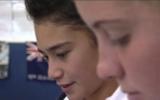Section navigation
Filter by result
Productive partnerships
“Increasing whānau and iwi authority and involvement in education is critical to improving presence, engagement, and achievement. To achieve this, parents and whānau must be actively involved in decision-making and their children’s learning in all education settings.”
Ka Hikitia – Managing for Success: The Māori Education Strategy 2008-2012, page 28.
Productive partnerships incorporate Māori students, whānau, and educators sharing knowledge and expertise with each other to produce better outcomes for Māori learners. This principle includes taking a ‘personalised learning’ approach that puts every learner and their achievement at the heart of education and recognises that one size fits one.
The resources you will find on this page reflect these principles of productive partnership and provide examples of this from schools across New Zealand.
-
Taihape Area School: School structure 18/05/2011
Filed under: Productive partnerships | Identity Language and Culture | Effective leaders
This clip looks at changes that Taihape Area School made to its timetable, option lines, and the structure of lessons – in order to better engage Māori students.
-
Relationships for learning 18/05/2011
Filed under: Productive partnerships | Identity Language and Culture | Effective leaders | Effective teachers
In this clip, we see different stakeholders discussing the benefits of change at Taihape Area School.
-
Taihape Area School 18/05/2011
Filed under: Productive partnerships | Identity Language and Culture | Effective leaders
The eleven clips featuring Taihape Area School show the positive impact of change (led by the principal) on the school.
-
Iwi partnership: Taihape Area School 18/05/2011
Filed under: Productive partnerships | Identity Language and Culture | Effective leaders
This clip explores the benefits (for all) of having a genuine partnership between school, students, and whānau/iwi.
« Previous 1 2








